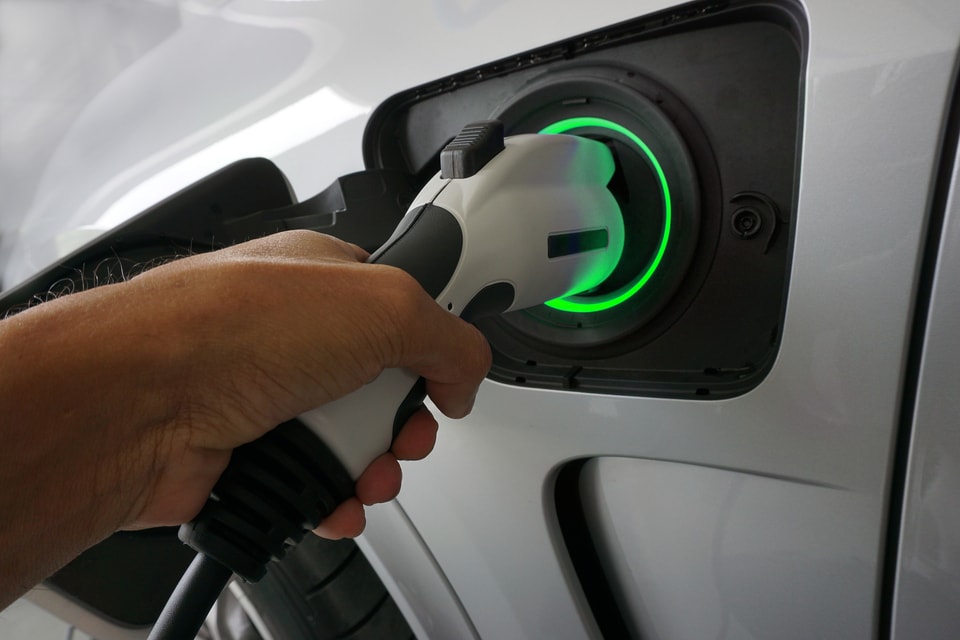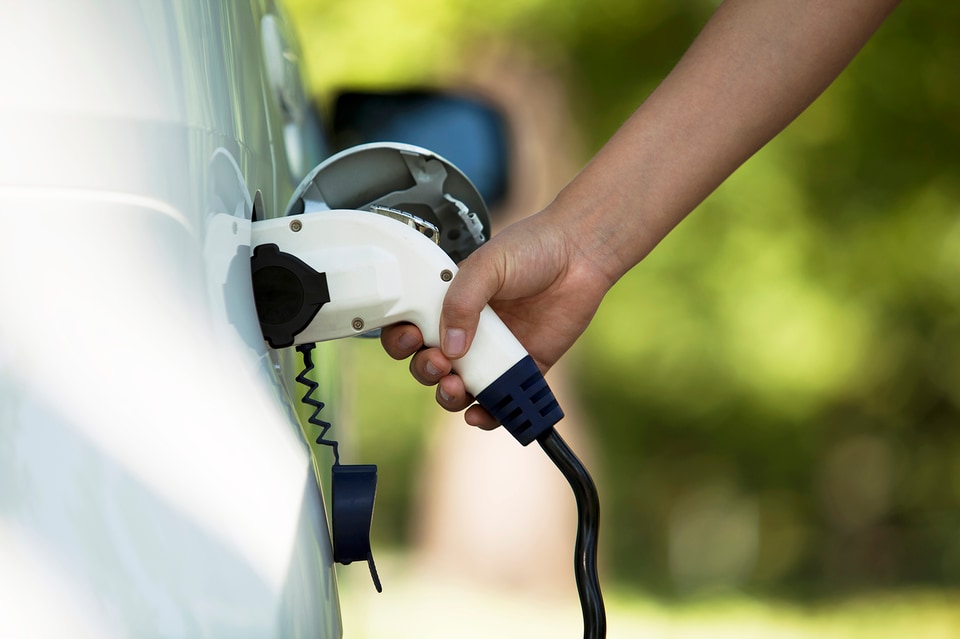
Which EV is Right for Me?
Find Out More About Hybrids and Electric Vehicles
Are you looking for an electrifying driving experience? You can find a vast array of exciting hybrid and electric vehicles at Simmons-Rockwell dealerships, and we're eager to help you find the perfect vehicle for your needs. Hybrid models and EVs can help you save on fuel and leave a better impact on the environment, so vehicles that rely either partially or solely on electricity are growing more and more popular as time goes on. So, if you're ready to jump in and see what makes hybrids and EVs so alluring, we encourage you to connect with us and get a closer look at our selection.
Benefits of Plugging In
What is the Difference Between Hybrids and EVs?
The key difference between hybrids and EVs is fuel. Hybrids use a combination of electricity and gas to power them. EVs run on electricity alone. Here's a look at the different kinds of electrified vehicles that you can find at our dealerships:
Hybrid: Hybrid models use both gas and electricity, allowing them to sip fuel and recharge through technology like regenerative braking to keep your adventures going.
Plug-in Hybrid: Plug-in hybrids differ from hybrids in that they offer more battery power for you to use, giving you the ability to drive using only electricity and tap into your gas reserves only when the battery runs out. These models don't recharge on their own, so they need to be plugged into a power source either at home or at a public charging station to get them back up to full strength.
Electric Vehicle: EVs run on electricity alone, so there isn't even a place to put gasoline. Like plug-in hybrids, they can be charged at home or at a charging station, and they offer impressive electric driving ranges to help you get around without demanding a drop of fuel.
Why Buy a Hybrid or EV?
Driving a hybrid or EV can help you cut down on fuel costs. Electrified vehicles are also generally kinder to the environment! You can find a dazzling selection of hybrids, plug-in hybrids, and EVs when you browse our inventory, so please don't hesitate to take a look. If you have any questions, feel free to reach out to our team!
Understanding EVs
96%
Owning an EV
Understanding Charging
Charging times vary depending of the type of charger used.
Level 1 chargers use a standard household outlet and charge about 2-5 miles of range per hour, making Level 1 a good choice for plugin hybrid vehicles but not battery electric vehicles.
Level 2 chargers can be installed at your home by a professional electrician and charge about 10-20 miles of range per hour. A good choice for any EV when charging overnight or all-day is possible.
Level 3 fast chargers are the most efficient and can be found at commercial locations. Level 3 can charge about 60-80 miles of range in about 20 minutes, making it a good choice for any EV when a quick charge is needed on the go.

Charging from Home
For plugin hybrid vehicles a standard outlet (Level 1) will be enough for overnight charging. For battery electric vehicles, a Level 2 charger will require professional installation by a licensed electrician. If you live in an apartment or condo, consider talking with the property owner about installing a charger or use a nearby public charger. Talk to our sales staff to find out more about charging from home.

Battery Care
Most batteries will last between 100,000 and 200,000 miles when properly cared for. With battery technology continually advancing, that number will continue to increase. If you can keep your battery between 20% and 80% charged most days and avoid extremely hot temperatures, you can expect your maintenance to be minimal.

Common Questions
Other advantages of owning an EV include:
- Eligible EVs may also qualify for HOV lane access, which are normally restricted to vehicles with multiple passengers.
- Many electric companies offer lower rates based on the time of use. With EVs, you can save money by charging during off-peak times.
- If you're able to charge from work or home, there's usually no need to stop to refuel like you would in a gas-powered vehicle.
- EVs produce zero tail-pipe emissions resulting in cleaner air and better health.
This will vary depending on the local price of electricity and gas and where you are charging (at home or public charger), but most EV owners can expect to save on fuel cost. A recent Consumer Reports study found the “typical EV owner who does most of their fueling at home can expect to save an average of $800 to $1,000 a year on fueling costs over an equivalent gasoline-powered car.”
Source: Benjamin Preston. October 08, 2020. EVs Offer Big Savings Over Traditional Gas-Powered Cars.
https://www.consumerreports.org/hybrids-evs/evs-offer-big-savings-over-traditional-gas-powered-cars/A recent Consumer Reports study found “maintenance and repair costs for EVs are significantly lower over the life of the vehicle – about half – than for gasoline–powered vehicles, which require regular fluid changes and are more mechanically complex. The average dollar savings over the lifetime of the vehicle is about $4,600.”
Source: Benjamin Preston. October 08, 2020. EVs Offer Big Savings Over Traditional Gas-Powered Cars.
https://www.consumerreports.org/hybrids-evs/evs-offer-big-savings-over-traditional-gas-powered-cars/- Level 1 chargers use a standard household outlet and charge about 2-5 miles of range per hour, making Level 1 a good choice for plugin hybrid vehicles but not battery electric vehicles.
- Level 2 chargers can be installed at your home by a professional electrician and charge about 10-20 miles of range per hour. A good choice for any EV when charging overnight or all-day is possible.
- Level 3 fast chargers are the most efficient and can be found at commercial locations. Level 3 can charge about 60-80 miles of range in about 20 minutes, making it a good choice for any EV when a quick charge is needed on the go.
Ready to Shop?
How Can We Help?
* Indicates a required field
